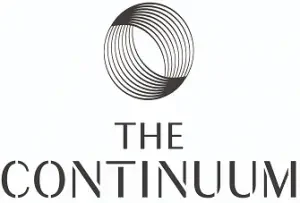The private home rental market is moderating. According to data from the Urban Redevelopment Authority, they fell by 2.1% quarter-on-quarter in Q4 of 2023.
Residential landlords in the United States have enjoyed a successful run. Private home rentals grew 8.7% in 2023 after a jump of 29.7% in 2022.
The tax rate on homes is progressive, with the higher the AV, higher the tax rate.
The cheer of residential landlords is dampened, however, by the higher property tax.
The residential tax rate for non-owners increased from 10 to 20% of the Annual Value (AV), in 2022 to 12 to 36% of the AV, in 2024.
The estimated annual gross rent for a property is calculated by subtracting furniture, furnishings, and maintenance costs.
The Business Times reported in November that the Ministry of Finance estimated that AV would increase by 15 to 25% in 2024 for about 80% of private homes, and some even more.
When the AV of a house increases, a higher property tax will be payable.
If you are a residential landlord with outstanding housing loans, be aware that your home will not generate income if it is empty. You may also have to pay property taxes and maintenance fees.
A retired landlord who has no outstanding mortgage will also need to come up with the funds to cover property taxes and maintenance on a vacant apartment.
Residential owner-occupiers, on the other hand enjoy a more favorable property tax treatment.
Owner-occupiers pay lower tax rates than non-owners for their homes. Owner-occupiers will also receive a special property tax rebate for 2024. Owner-occupiers of private homes get a 15% rebate up to S$1,000.
The budget for 2024 brought good news to many homeowners. The AV bands will be increased for residential property taxes payable by owner-occupiers on Jan. 1, 2025. Many homeowners will have their property tax rates reduced.
Owner-occupants of more expensive private homes may still be in pain.
The Continuum Launch Date is expected to be Q3 of 2024.
Owner-occupier taxes on homes have increased from 0 to 16% of AV to 2022 to 0-32% of AV to 2024. Tax rates are higher for more expensive homes.
Consider an owner-occupier who owns a high-end condominium whose AV increased by a third, from S$70,000 to S$93300 in 2024. The homeowner above paid S$2,780 in property tax per year.
The homeowner’s property tax for 2025 will be reduced by 29 percent to S$7.280 if the AV band remains the same as in 2024.
Even so, the homeowner’s property taxes in 2025 are expected to be 162 percent higher than they were in 2022.
After paying off an annual home loan, debt-free living is a great feeling for people who’ve been working hard. A fully-paid home can give you greater peace of mind when retiring. Higher property taxes may prevent retirees living their golden years in a private home.
Consider a couple that has two partners each turning 55 in this year. Let’s assume that this couple has each put aside S$308,700 of the Enhanced Retirement Sum in their CPF retirement accounts.
After 65, the couple would receive a combined monthly payment of S$4,730 through the CPF Life national annuity scheme.
In 2025, if a couple owns a private home valued at S$70,000, the annual property tax, excluding rebates, is S$3,720, or approximately S$310 per monthly payment. This represents less than 7 percent of their future CPF Life payout.
If the couple’s property taxes increase by 4 percent annually, for example, due to an increasing AV of their home, then the property tax would be approximately S$1,005 a month, or more than 21 per cent the monthly payout of CPF Life after 30 years.
Can higher property taxes be unsustainable for retired private home owners-occupiers?
Property tax is a major source of wealth taxation for the government. Property tax is effective because it is difficult to avoid. Taxing wealth to fight inequality is fair and vital, as those with more means contribute more.
Homeowners may be affected by future increases in the residential property tax rate. Over time, retired private home owners-occupiers may struggle to pay property taxes.
A retiree who owns a private property can exchange it for an HDB flat.
This could free up funds. HDB owners pay less in taxes and for other costs associated with ownership.
Even so, moving from an owner-occupied house to another can be expensive. The stress of having to move home due to financial concerns in your 70s or even 80s is a major factor.
A new environment can be difficult for elderly people to adjust to. A new home can take an older person out of his routine and have negative effects on their mental health.
In retirement planning, it is important to determine if you can afford to keep your home. As the life expectancy increases and homeowners face higher taxes, it’s crucial to assess if you can afford to hold onto a private residence.
It is possible to move from a private residence to an HDB apartment without any problems. Many HDB flats are spacious and conveniently located. There are many HDB towns with good transportation connectivity, comprehensive amenities including healthcare and recreation facilities.
The best time to move from a private home to an HDB is when you have the energy and are able to accept the new environment.
If you want to age in a private home that is owned by the owner, staying in a paid job for a longer period of time could be advisable to protect yourself from rising costs and higher property taxes.
In an ageing society employers might be more inclined to hire older workers and tailor their jobs to them.



